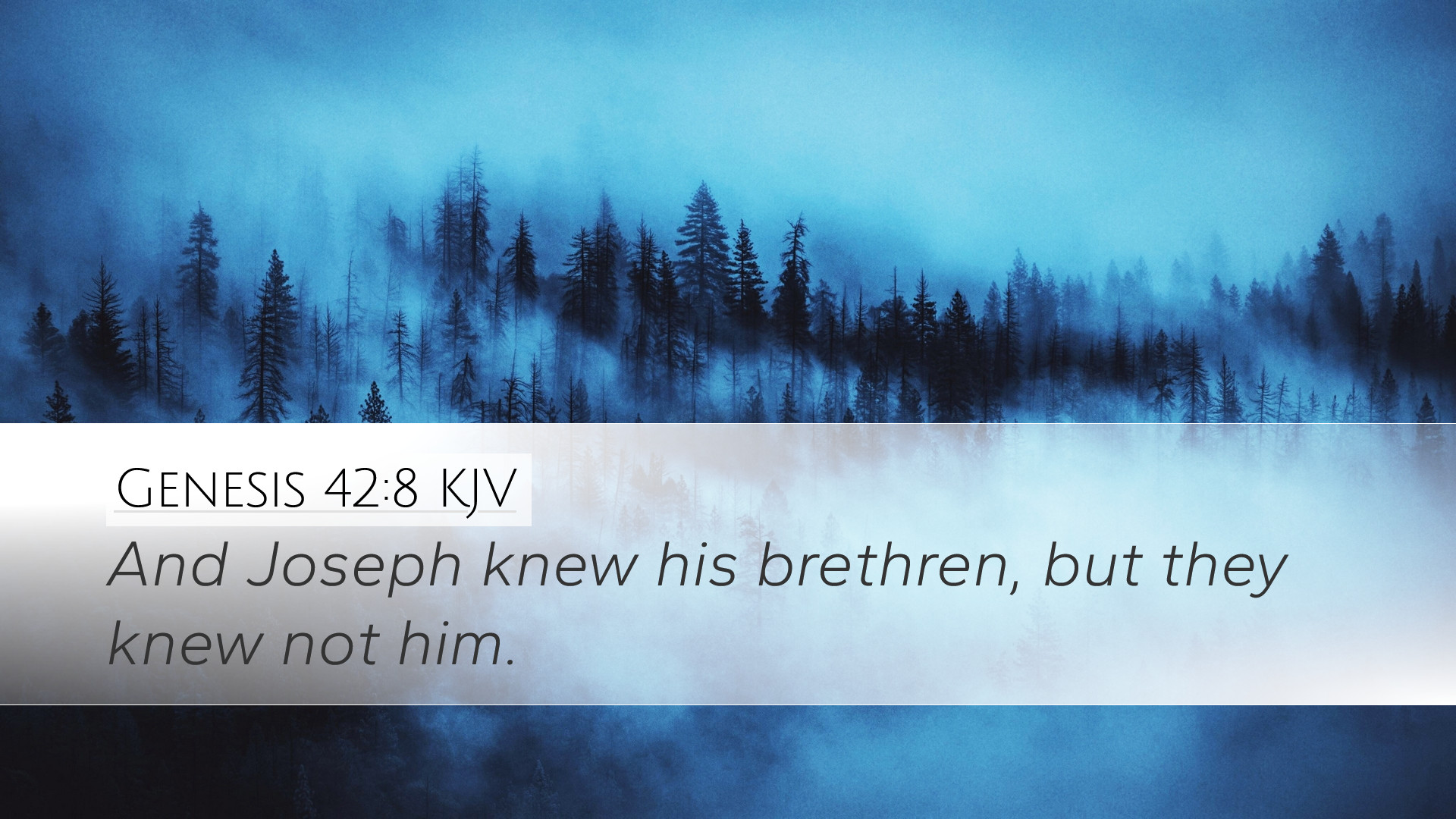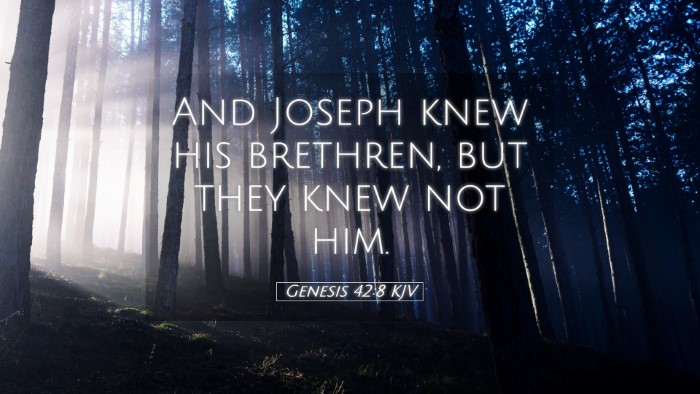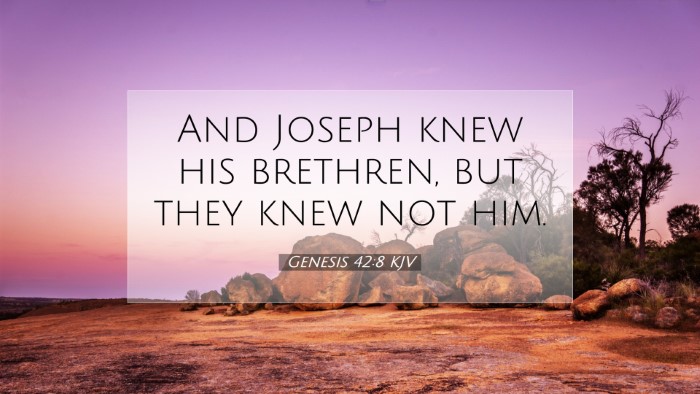Commentary on Genesis 42:8
Verse (Genesis 42:8): "And Joseph knew his brethren, but they knew not him."
Introduction
This verse occurs in a pivotal moment in the narrative of Joseph and his brothers. Joseph, sold into slavery by his own siblings, rises to prominence in Egypt, ultimately becoming second in command. This encounter marks the first significant interaction between Joseph and his brothers since their betrayal. It reflects themes of identity, reconciliation, and the providence of God.
Joseph’s Recognition
As noted by Matthew Henry, Joseph's recognition of his brothers signifies an essential turning point. The years of separation had not dulled his memory; rather, he retained a clear recollection of their faces despite the time and trauma endured. Henry comments on the profound emotional conflict Joseph must have felt—seeing those who wronged him now in a state of need.
Understanding Joseph's Perspective
- Memory of Betrayal: Joseph’s recognition underscores the depth of his painful past. The very faces he once looked upon with fraternity were now those of his accusers. This illustrates the complexity of human relationships and the long-lasting impact of betrayal.
- Divine Providence: In Joseph's eyes, this moment transcended mere chance. As Albert Barnes points out, Joseph’s ability to identify his brothers speaks to God’s overarching plan. God had guided Joseph’s journey through hardship for a greater purpose — to preserve the lineage of Israel during famine.
His Brothers’ Ignorance
The phrase, "but they knew not him," emphasizes the brothers' blindness to what had transpired. Adam Clarke elaborates on this, suggesting that the passage of years and the change in Joseph's appearance likely contributed to their inability to recognize him. Moreover, their minds were preoccupied with their own distress.
The Dynamics of Guilt and Shame
- Psychological Disconnect: The brothers' failure to recognize Joseph can be interpreted as symptomatic of their unresolved guilt. Their prior actions haunted them, creating a psychological barrier that prevented them from acknowledging their brother in his current status.
- Role Reversal: The encounter showcases a dramatic role reversal. The brothers who once wielded power over Joseph now come to him as supplicants, positioning him in a place of authority and them in a position of vulnerability.
Theological Implications
This verse opens up deeper discussions on themes such as forgiveness, reconciliation, and divine orchestration. Matthew Henry emphasizes that God often works through unusual circumstances to bring about his will, and this encounter between Joseph and his brothers is a prime example of divine intent.
Forgiveness and the Waiting Heart
- Joseph’s Journey: Joseph’s path from the pit to the palace was not merely a physical journey but a spiritual one as well. His willingness to engage with his brothers demonstrates a readiness for reconciliation and an opportunity for them to face their past.
- The Call to Action: This commentary encourages modern readers to reflect on their own relationships. Are there unresolved issues from the past that need attention? Joseph’s response serves as a model for how one can approach reconciliation even after deep hurts.
Conclusion
Genesis 42:8 serves as a crucial narrative that highlights the themes of identity, recognition, and the potential for redemption. As Joseph stands before his brothers, he embodies the tension of past grievances while also carrying the promise of future restoration. Through the lens of commentators like Matthew Henry, Albert Barnes, and Adam Clarke, we find both a sobering reflection on human relationships and an unwavering hope in God's providential care.


